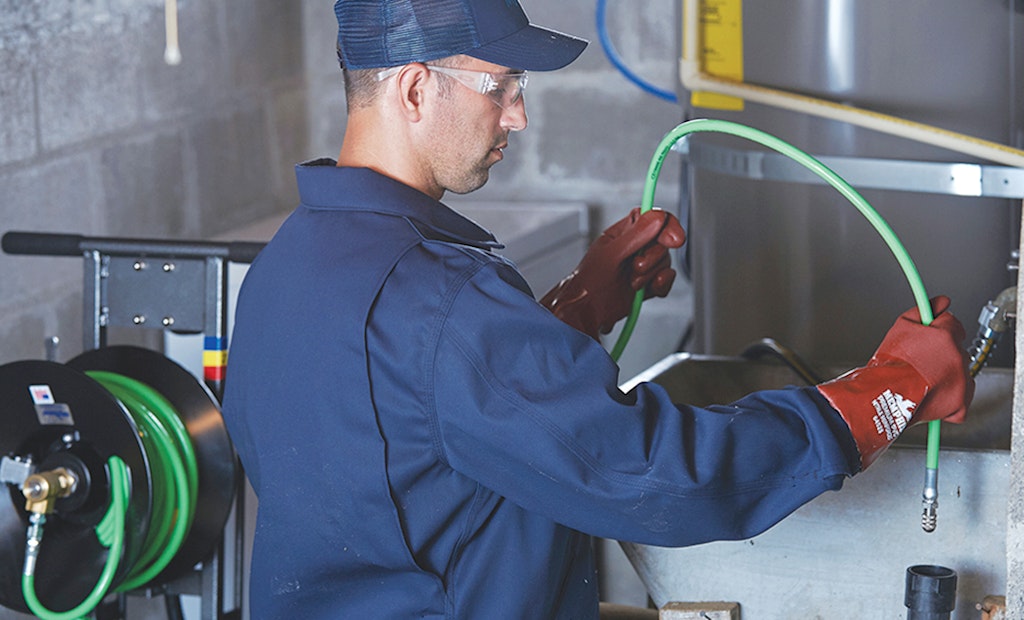Interested in Waterblasting?
Get Waterblasting articles, news and videos right in your inbox! Sign up now.
Waterblasting + Get AlertsDrain cleaning can be a very dirty and dangerous process, exposing workers to multiple types of hazards. But a few simple steps and a little common sense can help keep you and your employees safer on the job.
Protect your eyes
Goggles might look nerdy, but a glass eye isn’t any cooler. Use goggles, not safety glasses, and make sure to choose the right venting for the environment. If you’re only worried about impacts, direct vents are fine. If you need splash or dust protection (you probably do), choose goggles with indirect vents. If you’re expecting caustic vapors, choose a non-vented model with anti-fog lenses.
Keep covered
It may be tempting to dress for the weather when it gets hot out, but drain cleaning can become more dangerous if you’re not properly covered. Sewage carries many dangerous pathogens, and wearing long sleeves and pants prevents them from getting on your skin and into any cuts or abrasions.
Don’t breathe that
Depending on where you’re working and how well the system and space have been maintained, you may be exposed to molds or dust that can be dangerous when inhaled. Wearing a mask or respirator keeps your lungs protected. A combination respirator is a great option to protect you from mold spores, sewer vapors and gases, dust and other airborne particulates. Just make sure it fits well and has a functional filter cartridge.
Listen in
Cable machines and jetters can be very loud when in use. According to the World Health Organization, approximately 48% of plumbers report perceived hearing loss. Protect your ears with earplugs or earmuffs.
Hide those toes
Don’t end up in the emergency room just because you felt like rocking some flip-flops on the job. Always wear appropriate footwear when working. Aside from the previously mentioned dangers, drain cleaning equipment can be heavy. Steel-toed boots offer plenty of drop protection to keep your feet safe.
Wear the right gloves
Any gloves are better than no gloves, as hand coverings keep you protected from contaminants in sewage. However, as they break in, leather gloves develop a crease in the palm, which can get snagged in cable and twist your wrist, and they get wet. Instead, choose something waterproof with a firm, rubber palm to avoid creasing, and swap in new gloves when wrinkles develop.
Finally, if you are an employer, build a successful and actionable safety program by using the ideas presented in this guide to employee safety training.






